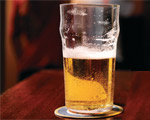 Go to main content
Go to main content
Archive Website of the UK government
Please note that this website has a UK government accesskeys system.
Main menu
Page menu
Parents

Alcohol, young people and the law

There are strict laws governing alcohol consumption in the UK. It is important to check that you are not breaking the law by allowing your child to drink. Find out what the law says about underage drinking, licensed premises and drink driving.
What the law says
It is against the law:
- to be drunk in charge of a child under seven in a public place or on licensed premises
- to sell alcohol to someone under 18, anywhere
- for an adult to buy or attempt to buy alcohol on behalf of someone under 18
- for someone under 18 to buy alcohol, attempt to buy alcohol or to be sold alcohol in any circumstances (unless acting at the request of the police or a weights and measures inspector)
- for someone under 18 to drink alcohol in licensed premises, with one exception - 16 and 17 year olds accompanied by an adult can drink but not buy beer, wine and cider with a table meal
- for an adult to buy alcohol for a person under 18 for consumption on licensed premises, except as above
Drinking at home
It is not illegal for a person under 18 to drink alcohol at home or at a friend’s house. Parents can choose to give young people some of their own alcohol when at home.
Drinking in public
Some towns have alcohol-free zones where nobody can drink in public. Even where these aren’t in place the police can take away alcohol or move young people on if they have been drinking. They could even be fined or arrested.
Drink driving
Anyone who drives or tries to drive after they’ve been drinking alcohol could face a driving ban, a large fine or even a prison sentence. It is illegal to drive while ‘unfit’ to do so. The law defines ‘unfit’ as having:
- over 80 milligrams (mg) of alcohol per 100 millilitres (ml) of blood
- over 35 mg of alcohol per 100 ml of breath
- over 107 mg of alcohol in 100 ml of urine
The police can stop anyone if they think they are driving with too much alcohol in their body. If stopped, the driver will be asked to take a breathalyser test to measure the amount of alcohol in their breath.
If the test is positive, the driver will be arrested and taken to a police station for further tests – possibly involving blood and urine. It is illegal to refuse to give a sample when asked.
What are the penalties for drink driving?
Anyone convicted of drink driving will be disqualified from driving for at least 12 months and fined up to £5,000. They could even face a prison sentence of six months.
Being 'drunk in charge' of a vehicle
If someone is over the alcohol limit, they could be arrested even if they are not driving or trying to drive. For example, a person could be arrested if they are over the alcohol limit and in possession of car keys, if their car is nearby.
There is no legal definition for being ‘in charge’ of a vehicle, but some examples might be:
- sleeping in a car while over the alcohol limit and in possession of the keys
- supervising another driver while over the limit (eg, if the driver only has a provisional licence)
 Facebook
Facebook Twitter
Twitter StumbleUpon
StumbleUpon Delicious
Delicious Reddit
Reddit